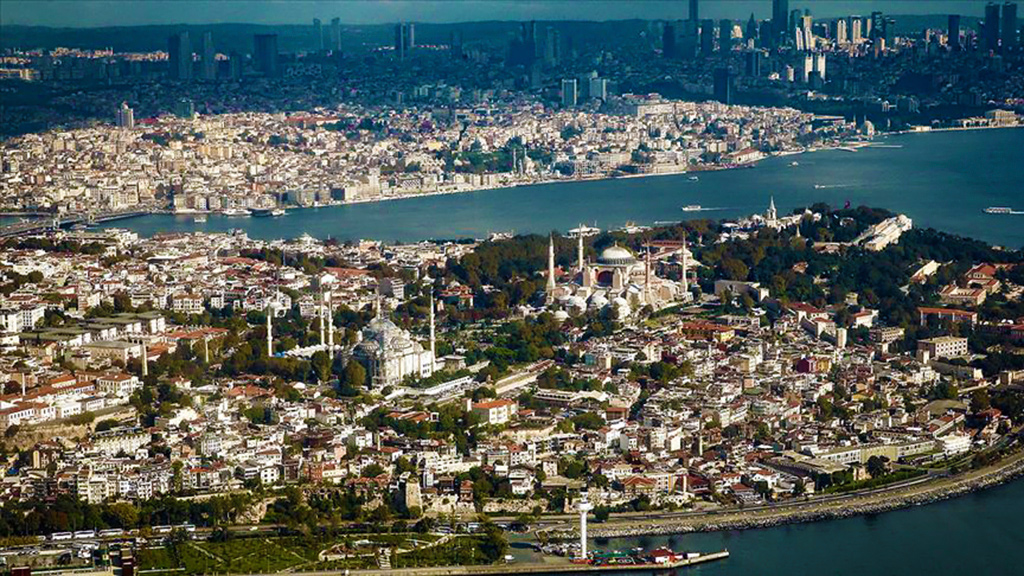
Voter turnout, sincerity key factors on June 23
The mayoral candidates of Turkey's major electoral alliances will compete once again on June 23. Provided that electoral volatility is low between rival camps, both contenders will primarily focus on maintaining their original level of popular support.
Share
The mayoral candidates of Turkey's major electoral alliances will compete once again on June 23. Provided that electoral volatility is low between rival camps, both contenders will primarily focus on maintaining their original level of popular support. Moreover, they will try and win over some 1.7 million voters who did not participate in the March election. Judging by early developments, there will be no shortage of wars of words between Binali Yıldırım and Ekrem Imamoğlu this time around. The supporters of both alliances will also feature prominently in the race. It is no secret that terrorist organizations like the PKK and the Gülenist Terror Group (FETÖ) are opposed to the People's Alliance. The Western media, too, engages in anti-Erdoğanism and throws its weight behind the Imamoğlu campaign under the pretext of supporting Turkish democracy.
For the record, those all-too-familiar lines are unlikely to shape how the general population thinks. Yet, we cannot ignore that the current smear campaign is part of a broader effort to influence investors and the business community to target the Turkish economy.
Electoral turnout will be a key factor in the upcoming mayoral race in Istanbul. Both campaigns are working hard to push up the turnout rate (which was 84 percent nationally in March) to their advantage. To succeed, they must maintain their existing supporters and encourage higher participation – which is why the main frameworks of both campaigns and how they interact with one another are the subject of much curiosity.
The Republican People's Party (CHP) candidates had adopted many of the Justice and Development Party's (AK Party) statements and tactics ahead of the March 31 election. It seems that Ekrem Imamoğlu will do the same thing over the next weeks. Competing campaign slogans –"everything will be great" and "much greater" – are a case in point. That both sides are competing over who will make the country's future "greater" captures the essence of democratic competition.
Both parties will incorporate the lessons of the March 31 election in
to their new campaign strategies. Their ability to further use an affirmative agenda, strike a healthy balance between national leaders and mayoral candidates, and whether they can reach voters at the grassroots level will determine the election's outcome. It will also be crucial to respond to the opposing camp's claims for some 40 days.
In March, the People's Alliance had underscored the question of national survival and highlighted its strong track record. On the campaign trail, its spokespeople talked about Turkey's struggle and accomplishments. The Nation Alliance, in turn, built a campaign around outreach and inclusiveness. Instead of discussing individual projects, it engaged in demonstrations of "radical love" and kept the reaction of its own base under control. The CHP strategy advertised Imamoğlu by focusing on individual stories. Although the June election will take place in Istanbul alone, it will set the stage for a combination of stories big and small. At a time when Turkey is combating terrorism and suffering casualties, the kind of challenges we face will indeed be the subject of heated debate. Meanwhile, the Nation Alliance blamed the Supreme Electoral Council's (YSK) decision to annul the Istanbul mayoral race to an alleged "dictatorship." CHP Chairman Kemal Kılıçdaroğlu's claim that "an intervention took place against the national will" reflects this approach.
I believe that small stories, rather than big stories, will play a more prominent role in the upcoming mayoral race. The AK Party and President Recep Tayyip Erdoğan are distinguished from others by the genuine story of their relationship with the voters. Again, face-to-face interaction with voters has been a popular method since the days of the Welfare Party (RP). Yıldırım, too, is a politician whose modesty receives much appreciation.
To cut a long story short, the mayoral race in Istanbul will be decided by each candidate's ability to connect with voters over small stories. Artificial tactics will fail and sincerity will triumph.
[Daily Sabah, 15 May 2019]
Tags »
Related Articles






